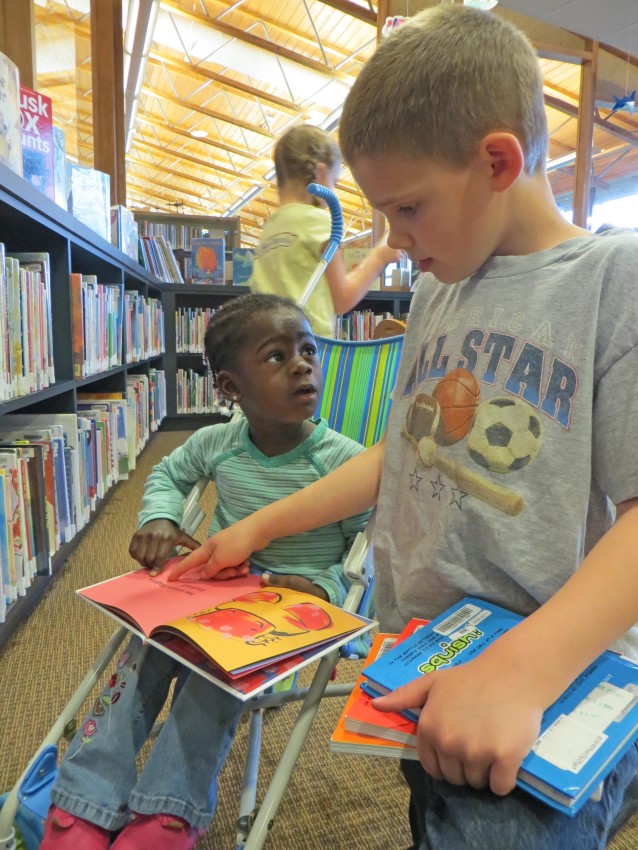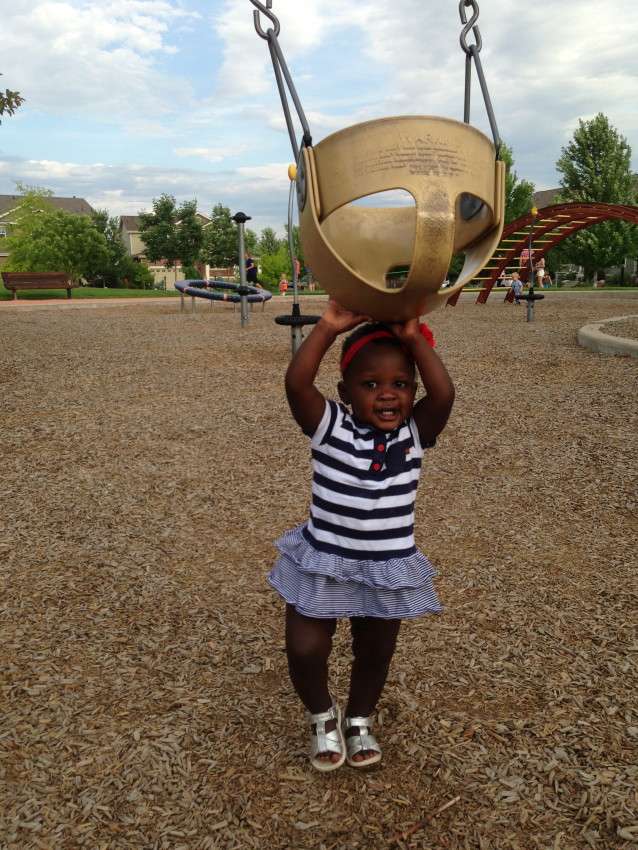“Muffins with Mom”, “Daddy Donut Day”, and assignments like “How did you receive your name?” are just a few events and assignments that can generate unhappy feelings with your adopted child. Students can bring home tricky homework assignments and flyers about difficult school events.
Your mind may be racing trying to figure out how you can go about certain school assignments and events in a way that will not upset your child. Or
you may be trying to avoid the assignment or event all together. My child is not adopted; however, I raise her without her father. School Days like “Daddy Donut Day” are no fun in my household. It is heartbreaking to see your child upset, and sometimes very hard to answer the questions she may have. My child is not the only child with a different upbringing. Some children are raised by grandparents, by just a father, foster parents, and some children are adopted. We all have different family dynamics. We live in a very diverse country; however, schools are still established in the traditional biological mother and father family.
Events that celebrate one specific parent are hard to celebrate if a child does not have a relationship with one or the other. Assignments like “How did you receive your name?” are hard to answer if you are adopted and that was already your name to begin with. There are other assignments like “bring in your baby photo”, autobiography papers, the study of genetics, student of the day/week project, and family tree assignments. How can children bring in a photo of them as a baby if they were adopted at an older age? How can children compare his or her genetics to their parents if they were adopted? A family tree might be difficult for children to do because they may not know which family to use, an autobiography might be challenging for the child to write about if the child had or has a traumatic childhood. These are the questions and thoughts that may pop up into kids’ minds when asked to do these projects. It can be very dismaying for the child.
How do we handle this?
I believe it is imperative to talk to your child’s teacher about the difficulties some of these assignments and events might cause. The teacher may be able to alter the assignment in a way that will not cause your child to be uncomfortable. If the teacher is unsure how to alter the assignments, offer some ideas! Some assignments may be a part of the curriculum provided by the school system and some events are school wide. If this is the case, contact the school administration. You could possibly attend board meetings to address the issue in a polite positive manner. Also, talk to your child about these assignments. Ask your child what they are feeling, and begin a discussion.
 Here are some alternative assignments and events that could be held as an alternative:
Here are some alternative assignments and events that could be held as an alternative:
- “Muffins with mom”/”Daddy Donut Day”- Muffins in May, Donuts in December could be an alternative. Instead of singling out in the title of the event on who the children can bring, put in the description of the event that they can bring someone who is important to them.
- Autobiographies Instead of having students do a paper about their whole life, have them chose a specific time in their life. This way, children can choose if they want to write about this past year or a few years back.
- Bring a baby photo Baby photos are cute, but instead the teacher could have the children bring in their favorite picture of them. This way, children can choose which photo they have at home to bring!
- “Adopt-a-projects” Have you heard of these? I did one when I was younger called “adopt-a-tree”. The most common adopt-a-project is “adopt-a-tree”. This is where you pick a specific tree and the child is to research facts about the tree. The student studies the tree in different seasons, and takes care of the tree. Why are they called this? Simply changing the name would be an alternative to this project. Using the word adopt can confuse the child.
- Student of the week/day These projects mostly consist of children bringing in pictures of themselves while babies, growing up, family pictures, and etc. It is basically in “all about me” poster. Again, this can bring up unwanted feelings for a child with a difficult past. Rewriting the directions for this assignment could be an alternative. The directions could simply state “make a poster about all the things you like so we can get to know you better”. Then the children can draw pictures or cut things out of magazines of different types of food that they enjoy, sports, and etc.
- Family tree I think this one speaks for itself. Not all students want to talk about their family. Some children may not have a good relationship with their family, or in the case of adopted children they may not know which family to choose! Instead, children can do a family wheel and write down everyone who is important to them on the wheel. They could also stick to the tree but instead of having branches the students could put everyone who is important to them in the tree without any specific order. They could do this by writing names or using photographs.
- “How did you receive your name” This assignment is called different things at different schools. My child came home with one of these a couple weeks ago. One of the questions said, “Why did your parents name you what they did?” My answer was, “I liked it”. I didn’t have a reason why I named her what she is named; there wasn’t some huge history story behind it. This assignment for children who are adopted may be difficult to answer. Some adoptive parents may not have named their children, so this assignment would be hard to do. Instead of focusing on the students’ first name the assignment could ask about the origin of their last name. For example, my child’s last name is Kelly. She could research “What is the origin of the last name Kelly”. She would than find out that it is an Irish name and one of the most common last names for families in Ireland. This assignment would be a fun and exciting activity to share with classmates as well.
Being an advocate for your child, your family and other families is crucial. Together we can change these difficulties and prevent other children from having to go through these uncomfortable situations. Avoiding potential triggers is not an easy task, but we can attempt to prevent this by communicating and suggesting alternatives for projects and events. Creating a safe place for children is the ultimate goal, and by accomplishing these steps the goal can be achieved.
